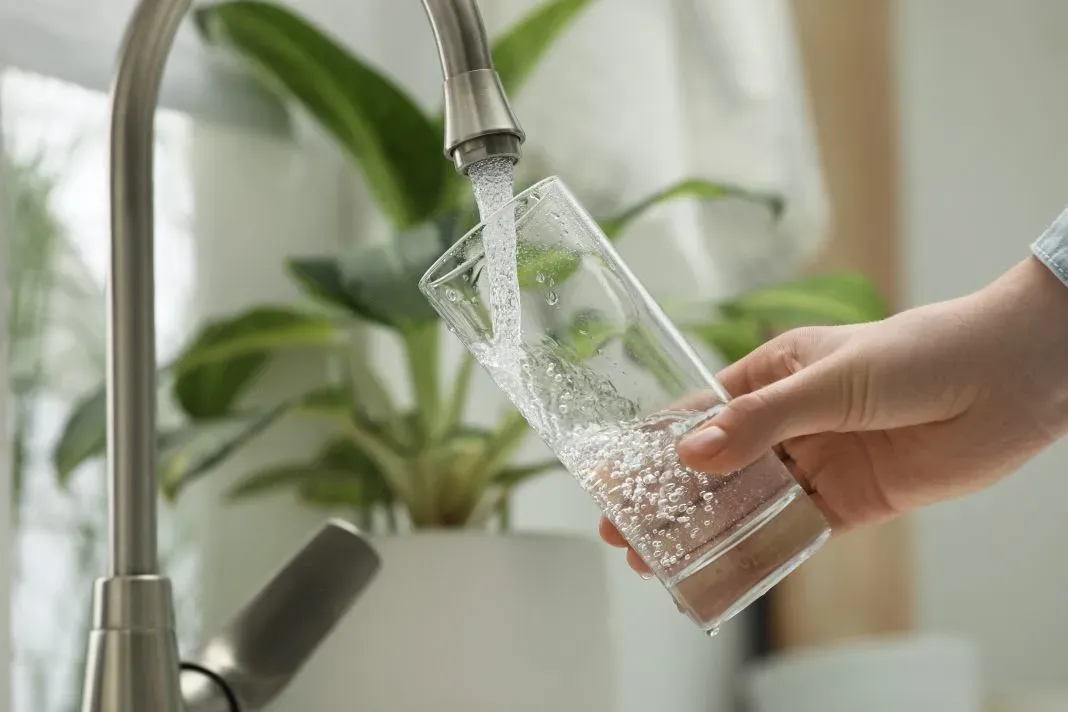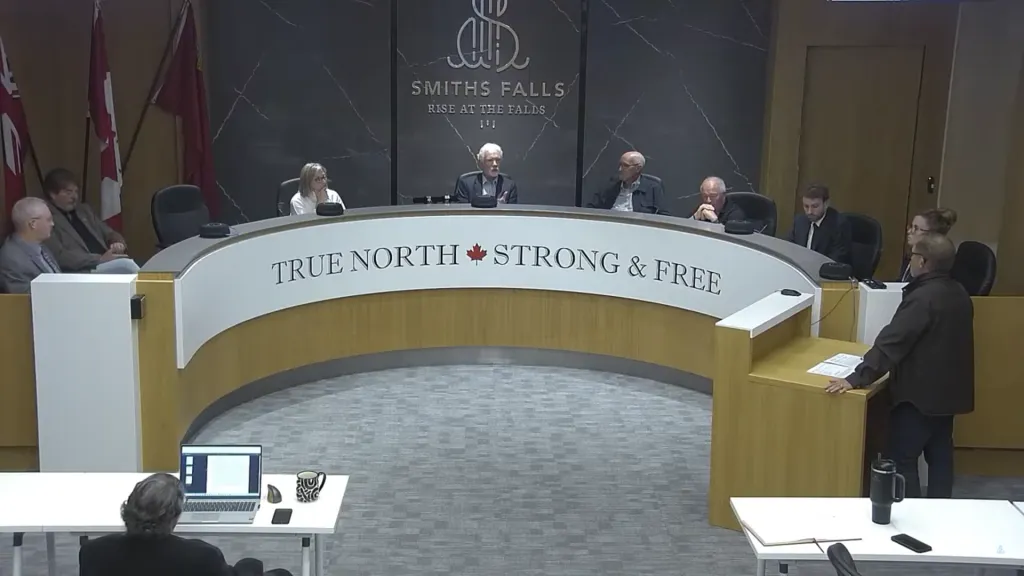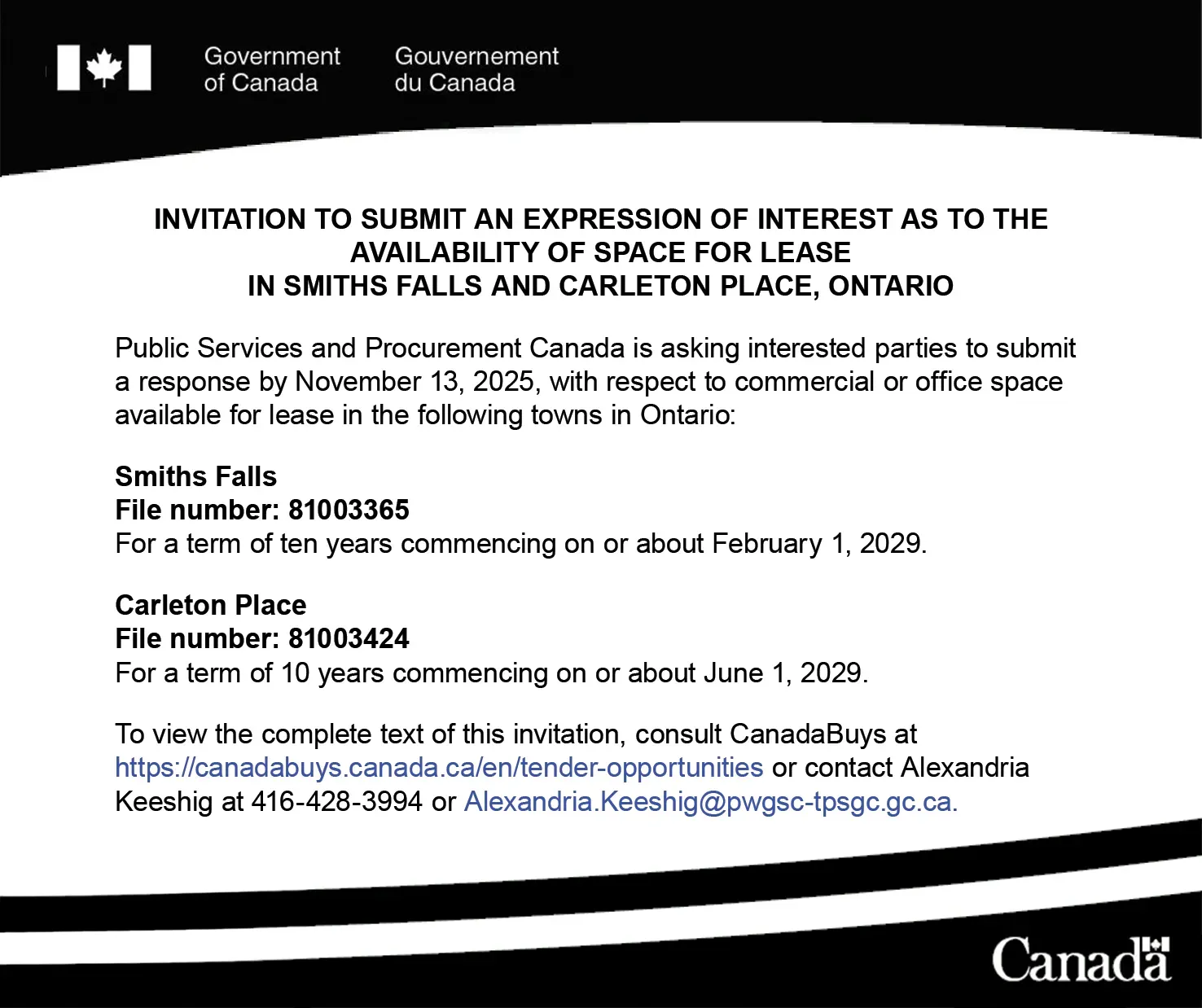SMITHS FALLS — The Town of Smiths Falls has assured residents that the community’s drinking water is safe after recent water testing at the municipal compost site on Highway 43, but questions remain about delayed disclosures and missing reports.
On Sept. 22, council received a written update from Paul McMunn, director of public works, who confirmed that soil, groundwater and surface water studies had been completed and that the Ministry of Environment, Conservation and Parks (MECP) issued an updated Environmental Compliance Approval (ECA) for the site on Sept. 11.
The testing process began after the Rideau Round Table proposed a biochar project at the compost site in 2022, which prompted the town to apply for updated environmental approvals and conduct baseline water testing and other studies.
Coun. Jennifer Miller asked the question circulating in the community: is the water safe to drink?
“Yes,” McMunn said, adding that the town can now post the full reports and the ECA on its website. He explained that until the approval was finalized by the ministry, results were considered draft and were not made public.
Soil, water, and groundwater tests
McMunn said water testing, along with soil and groundwater assessments, conducted between March 2024 and July 2025 found exceedances of cadmium, lead and zinc in three of five shallow soil pits, and exceedances of petroleum hydrocarbons (PHCs), metals and polycyclic aromatic hydrocarbons (PAHs) in half of 10 deeper test pits.
Surface water and groundwater water testing samples taken in March 2025 showed no detectable PHCs, PAHs, mercury or chromium VI, and groundwater met standards in all but one case, where cobalt exceeded provincial limits. Consultants advised the cobalt may have leached naturally from bedrock.
Despite the soil exceedances, McMunn said groundwater and surface water results met ministry standards and the town’s ECA was approved.
Mayor Shawn Pankow raised questions about whether a delineation study, which maps the spread of contaminants, had been completed.
McMunn said the requirement was satisfied through a hydrogeological assessment. “All that’s been done,” he told council, adding the report would be posted online.
Dispute over disclosure
Local resident Nate Morris, who first became involved in the compost site through the Rideau Round Table’s 2022 biochar project, said that explanation doesn’t match the record. He spoke with Hometown News on Sept. 23.
Morris said ministry documents show the MECP ordered delineation studies in November 2024. Yet three days before Monday’s council meeting, he received a freedom of information response from town staff saying no such study existed, raising concerns about delayed water testing disclosures.
“A hydrogeological report looks at water movement. A delineation study assesses contamination within that system. They’re not the same thing,” Morris said. “Without a delineation study, the public cannot fully understand the scope of the contamination.”
Morris also pointed to a 165-day delay in releasing December 2024 soil test results, which confirmed exceedances of PHCs and PAHs in the Intake Protection Zone, an area designated to protect the municipal drinking water supply.
According to Health Canada, PHCs can be toxic if they leach into groundwater or surface water. Ongoing water testing helps monitor these risks, as several PAHs are classified as carcinogenic.
“The town publicly released water test results that showed no problem, while withholding soil tests that showed exceedances,” Morris said. “That’s selective reporting.”
Public health concerns
Morris said in April he urged council to share the soil and water data with Dr. Linna Li, deputy medical officer of health, to assess risks from local fish consumption and recreational water use. “There is no downside to sharing this data with public health officials, yet there could be serious harm avoided, especially for children who rely on locally caught fish,” he wrote at the time.
Mayor Pankow responded on April 28 that staff were working with the health unit, but Morris said it remains unclear whether the withheld soil test results were ever disclosed to public health officials.
Next steps
The town has spent more than $87,000 on testing and assessments tied to the compost site application, according to McMunn’s Sept. 22 report. Under the new ECA, annual water testing of groundwater and surface water will now be required, with reports due each May.
Morris, who has also filed a complaint with the Ontario Ombudsman, said the outstanding questions are about accountability and timely water testing disclosures. “I’m not certain the delineation shows anything catastrophic,” he said. “What concerns me is the pattern of delay, denial and secrecy.”
When asked whether he personally drinks Smiths Falls water, Morris offered this analogy:
“As a thought experiment, imagine you’re standing in the corner of a large room. At the far end of the room is lava, slowly creeping toward you. Then the lights go out. You have no way of knowing whether the lava is still advancing or if it has retreated. At this exact moment, you feel fine. So, are you safe, or not safe?
“A delineation test is the functional equivalent of turning the lights back on. It tells you where the lava was and where it has moved, giving you the information you need to decide what actions, if any, are required to stay safe.”
Stay connected to your community — read the latest Smiths Falls news.
Follow Smiths Falls council meetings on their Youtube channel.






